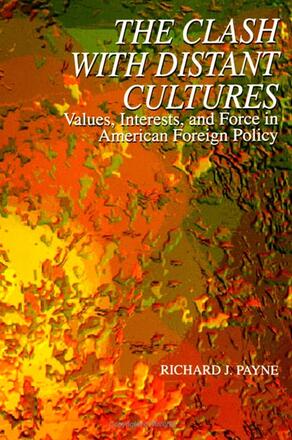
The Clash with Distant Cultures
Values, Interests, and Force in American Foreign Policy
Alternative formats available from:
An analysis of the impact of cultural values on the use of force and negotiations in American foreign policy.
Description
Whereas foreign policymaking is generally viewed as a rational, unemotional, and sophisticated process, this analysis of American policies toward the Persian Gulf, the Palestinian-Israeli conflict, and the Bosnian conflict suggests that the underlying and largely unexamined cultural values of most ordinary Americans play a major role in determining the United States' choice of force or negotiation in dealing with international problems. Payne examines the linkage between the United States' tendency to use force in foreign policy and the culture of violence in America. He argues that the costs of resolving conflicts militarily are likely to become more burdensome as economic competitors seek to take advantage of the U. S. tendency to demonstrate resolve primarily through the application of force. Post-Cold War challenges, Payne argues, call for a more nuanced combination of force and diplomacy. He finds hope in the fact that a strong component of American culture favors nonviolence, embraces humanitarianism, and if cultivated can contribute to the peaceful resolution of conflicts.
Richard J. Payne is Distinguished Professor in the Department of Political Science at Illinois State University. He is the author of Opportunities and Dangers of Soviet-Cuban Expansion: Toward a Pragmatic U. S. Policy, also published by SUNY Press; The Nonsuperpowers and South Africa; The West European Allies, the Third World, and U. S. Foreign Policy; and The Third World and South Africa: Post-Apartheid Challenges.
Reviews
"Payne's exposition of the profound influence of cultural factors on state behavior offers a needed corrective to the 'realist' school that still dominates academic writing on international relations (in which military and economic factors are emphasized to the virtual exclusion of ideational considerations); it can also help policymakers become more self-aware of the cultural biases implicit in their actions and statements. The book's hard-hitting exposition of American cultural myths and prejudices and their reflection on U. S. foreign policy, plus its accessible style, should make it useful in a variety of courses—from American Civilization to International Relations to Peace Studies—and to laypersons attentive to public affairs. " — Seyom Brown, Brandeis University
"The author addresses a foreign policy problem of major significance, that of the complex relationship between a nation's culture and its international behavior. Payne establishes a sound basis for his assertion that (1) American foreign policy has been heavily dependent on the use of culturally reinforced violence, and (2) the future cost of resolving conflicts through violence will probably become vastly more burdensome. The time is right for a book that suggests constructive new directions for American foreign policy. This is a much-needed book. " — Henry T. Nash, Wheaton College